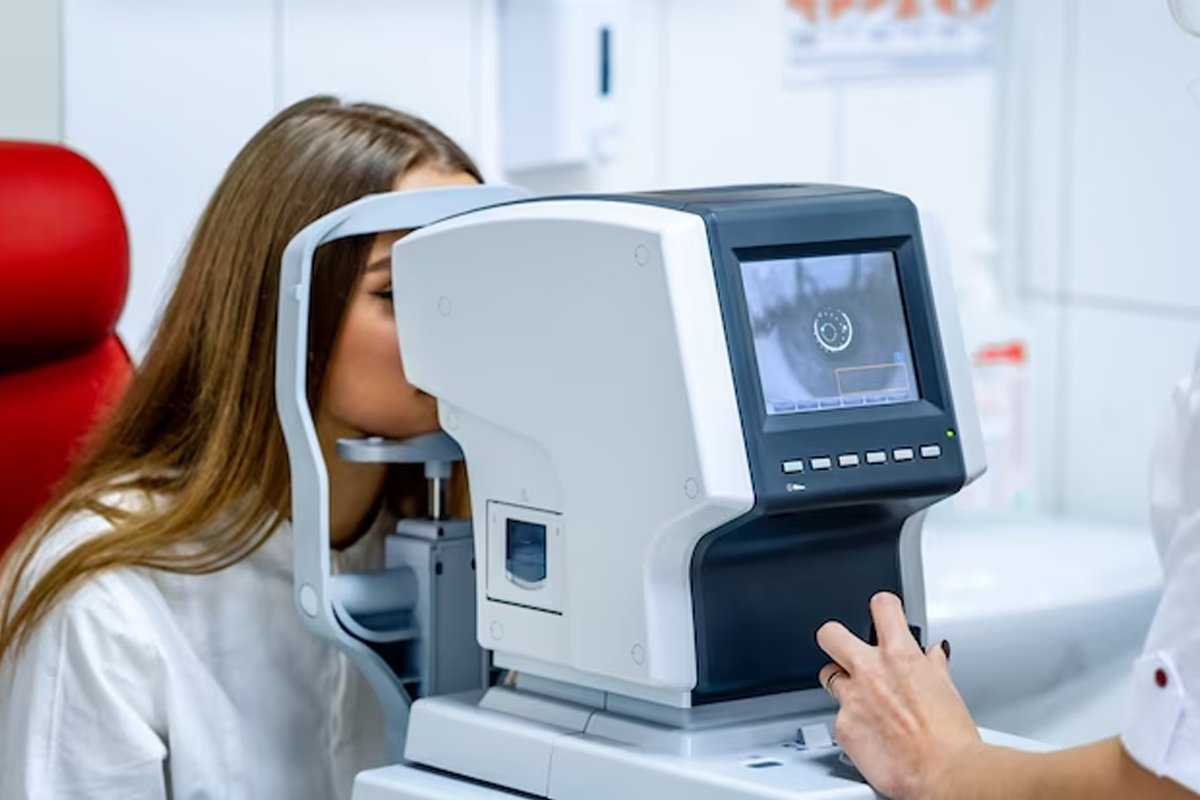
Comprehensive Eye Checkup (Computerised )
A Comprehensive Eye Checkup (Computerized) is a state-of-the-art examination that employs advanced technology to thoroughly assess and monitor the health of your eyes. This specialized examination goes beyond traditional eye tests, utilizing computerized systems to provide precise and detailed insights into your ocular well-being.
The process begins with a meticulous examination of your visual acuity to determine the sharpness and clarity of your vision. Computerized refractive testing is employed to assess any refractive errors, such as nearsightedness, farsightedness, or astigmatism, ensuring accurate prescription for corrective lenses if needed.
The examination extends to a detailed analysis of the internal structures of the eye, facilitated by cutting-edge imaging technology. High-resolution digital imaging allows for a comprehensive evaluation of the retina, optic nerve, and other vital structures, aiding in the early detection of conditions such as glaucoma, macular degeneration, and diabetic retinopathy.

Furthermore, computerized tonometry is utilized to measure intraocular pressure, a crucial factor in identifying risks associated with conditions like glaucoma.
The examination also includes assessments for eye coordination, depth perception, and color vision, providing a holistic understanding of your visual function.
In addition to detecting and managing refractive errors and eye diseases, the computerized eye checkup offers a personalized approach to eye care. The detailed data collected enables the eye care professional to tailor recommendations for preventive measures, lifestyle adjustments, and customized treatment plans.
In summary, a Comprehensive Eye Checkup (Computerized) ensures a thorough and precise evaluation of your eye health, utilizing cutting-edge technology to deliver accurate diagnoses and personalized care. This advanced examination is essential for maintaining optimal vision and preventing potential eye-related complications.
What is a Comprehensive Eye Checkup?
A Comprehensive Eye Checkup, also known as a comprehensive eye examination or eye exam, is a thorough and systematic evaluation of the overall health and function of the eyes. It is conducted by an eye care professional, typically an optometrist or ophthalmologist, and is essential for maintaining good eye health and preventing vision problems.
During a Comprehensive Eye Checkup, various tests and assessments are performed to assess different aspects of ocular health and visual function. These may include:
1. Visual Acuity Testing: Measurement of how well a person can see at various
distances using an eye chart.
2. Refraction: Determination of the need for corrective lenses (glasses or contact
lenses) to achieve optimal visual acuity.
3. Eye Pressure Measurement: Evaluation for glaucoma by measuring intraocular
pressure.
4. Visual Field Test: Assessment of the peripheral vision to detect any
abnormalities or defects.
5. Retinal Examination: Inspection of the back of the eye, including the retina and
optic nerve, using various instruments like an ophthalmoscope.
6. Slit-Lamp Examination: Detailed examination of the front and back of the eye
using a specialized microscope called a slit lamp.
7. Pupil Response Test: Assessment of how the pupils respond to light, which can
provide information about neurological function.
8. Color Vision Testing: Evaluation of the ability to perceive different colors
accurately.
9. Eye Muscle Movement Test: Examination of the coordination and movement of the
eye muscles.
10.Overall Health Assessment: Discussion of general health, medical history, and
any factors that may affect eye health.
A Comprehensive Eye Checkup is not only important for identifying refractive errors and prescribing corrective measures but also for detecting early signs of eye diseases such as glaucoma, cataracts, macular degeneration, and diabetic retinopathy. Early detection and intervention can significantly contribute to the preservation of vision and overall eye health. It is recommended that individuals undergo regular comprehensive eye examinations, even in the absence of noticeable vision problems, to ensure timely detection and management of potential eye issues.
